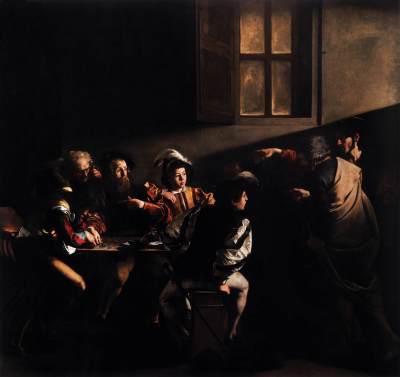1 1gs 19:9a, 11-13a
Ps 85:9, 10, 11-12, 13-14
Rom 9:1-5
Mt 14:22-33
 I just moved to Texas where the question of what to do the thousands of unaccompanied minors crossing the border into our state looms large. More than 50,000 young people from Latin America have entered the US in the last year. This is no small feat. Many of them have traveled across the scorching desert in the intense summer heat, some perishing in the frontier due to lack of food and water. Drug gangs and traffickers have taken the lives of others. But the route seems worth it to those who leave behind a homeland ravished by violence and devastating poverty.
I just moved to Texas where the question of what to do the thousands of unaccompanied minors crossing the border into our state looms large. More than 50,000 young people from Latin America have entered the US in the last year. This is no small feat. Many of them have traveled across the scorching desert in the intense summer heat, some perishing in the frontier due to lack of food and water. Drug gangs and traffickers have taken the lives of others. But the route seems worth it to those who leave behind a homeland ravished by violence and devastating poverty.
In Texas, we meet a lot of immigrants who have taken the same leap of faith as these young people, illegally crossing the border at the risk of their lives and livelihoods, in order to seek out something, anything better than what they leave behind. I spoke with a family where both parents were university graduates in good jobs with an infant son who simply could not continue to live in an area crippled by the violence of drug cartels. They saved up and paid a smuggler to get them across the border. Here in the US, they didn’t know the language. Since they had no papers, they couldn’t get a job suitable to their skill and education level. Finding housing was difficult. And of course, they can never return to Mexico to see the family they left behind. Now, eight years later, their kids are perfectly bilingual, well-educated in the bilingual schools here, and most importantly, safe. Money, while not abundant, is sufficient. Work is available. It is hard work: physical labor of any kind in the hot Texas summer is hard. But the work is steady. What was amazing was the faith they communicated in their story. “For a long time, I was angry at God,” the husband told me. “I could not see what he wanted from me, why he had made things so difficult. But I see now what God was doing. I see now that he was with me all the time. I see now that he was leading me.”
As I read the Psalm for this Sunday, I heard their story interwoven. “Justice shall walk before him, and prepare the way of his steps.” As I read the familiar gospel narrative of Jesus leaping out into the water after our Lord, I thought too of their leap of faith into the hands of a smuggler they did not know. And as I heard them describe how fervently they believed God had lead them here despite their inability for so many years to sense how God was present in their suffering and sacrifice, I thought of Elijah confronting God in the tiny whisper of his heart.
I have always been wary of reading scripture or doing theology primarily in light of one’s experience. I have always feared too much subjectivity in the conclusions of one who starts with experience. But here in Austin, I seem incapable of separating my experience of living and working and worshiping with my Latino brothers and sisters, many of them here illegally, from the way I reason that God is speaking and calling us to moral action. As a teacher, I told my students repeatedly that solidarity was not a “vague feeling of compassion” (Solicitude rei Socialis) but rather a recognition that all people are bound together “as members of a common family” in such a way that it becomes impossible for us “to look with indifference upon the hunger, misery and poverty of other nations whose citizens are unable to enjoy even elementary human rights” (Mater et Magistra). Now, I am learning solidarity from the broken English narratives of those people I live with, who would take extraordinary risks to give their family a chance here in this country.
When we look at Peter walking out onto the water, we need to be wary of overly-simplistic interpretations emphasizing the importance of having faith and its connection to success. Peter here is not the hero of the story. True, he follows Jesus out into the water while (presumably) the disciples cower in the boat. And true, Jesus rebukes him for losing faith, implying at least that had he kept the faith, he would have completed the trek across the waves successfully. The hero here though is Jesus, who stretches out his hand to Peter and guides him gently to safety. And it is in this action that I see the moral imperative of the story as it pertains to those trying desperately (and how desperate they are!) to enter this country illegally. The job of the Church and for those who are part of her body is to reach their hand out to those making such a leap of faith and guide them to safety.
In our local newspaper this weekend, a reverend wrote a letter to the editor arguing that the Church should be at the front of the battle in caring for the influx of recent immigrants into the country. He suggested that churches that host camps should cancel their remaining sessions and instead offer to house some of the children until they are placed elsewhere. He writes,
“These camps have living areas with bedding and dining and kitchen facilities. They also have space where children can be children without fear of gangs and death. Let’s see area churches be Christian!”
Here in this letter we have a taste of what solidarity demands of Christ’s disciples. It demands a commitment to the good of our brothers and sisters (and yes, they are our brothers and sisters) regardless of ways in which they came into this country and regardless of the immense political and legal challenge (and it is an immense challenge) about what should be done long-term. Dana Dillon suggested in the combox last week when Meghan wrote on this issue to donate to Catholic Charities for immigrant relief operations. This is another way of embracing solidarity from afar and emulating Christ’s compassionate rescue of Peter.
The Church is in a unique place in that it can awaken a sense of solidarity from those who don’t yet have it. But what I have learned recently is that solidarity is perhaps best learned through experience, through actually living as brothers and sisters and neighbors and friends with those who need our help. After listening to our new friends tell their stories about coming into this country illegally, a dear friend of mine commented, “Deontologist that I am, if somebody came asking about them, I would lie, lie, lie.” And in that morally-compromised comment I think we see truly the power of solidarity and the difficulty of living it out. But live it out we must by reaching out a hand of Christ to help our brothers and sisters who would be lost in the storm otherwise.




Trackbacks/Pingbacks